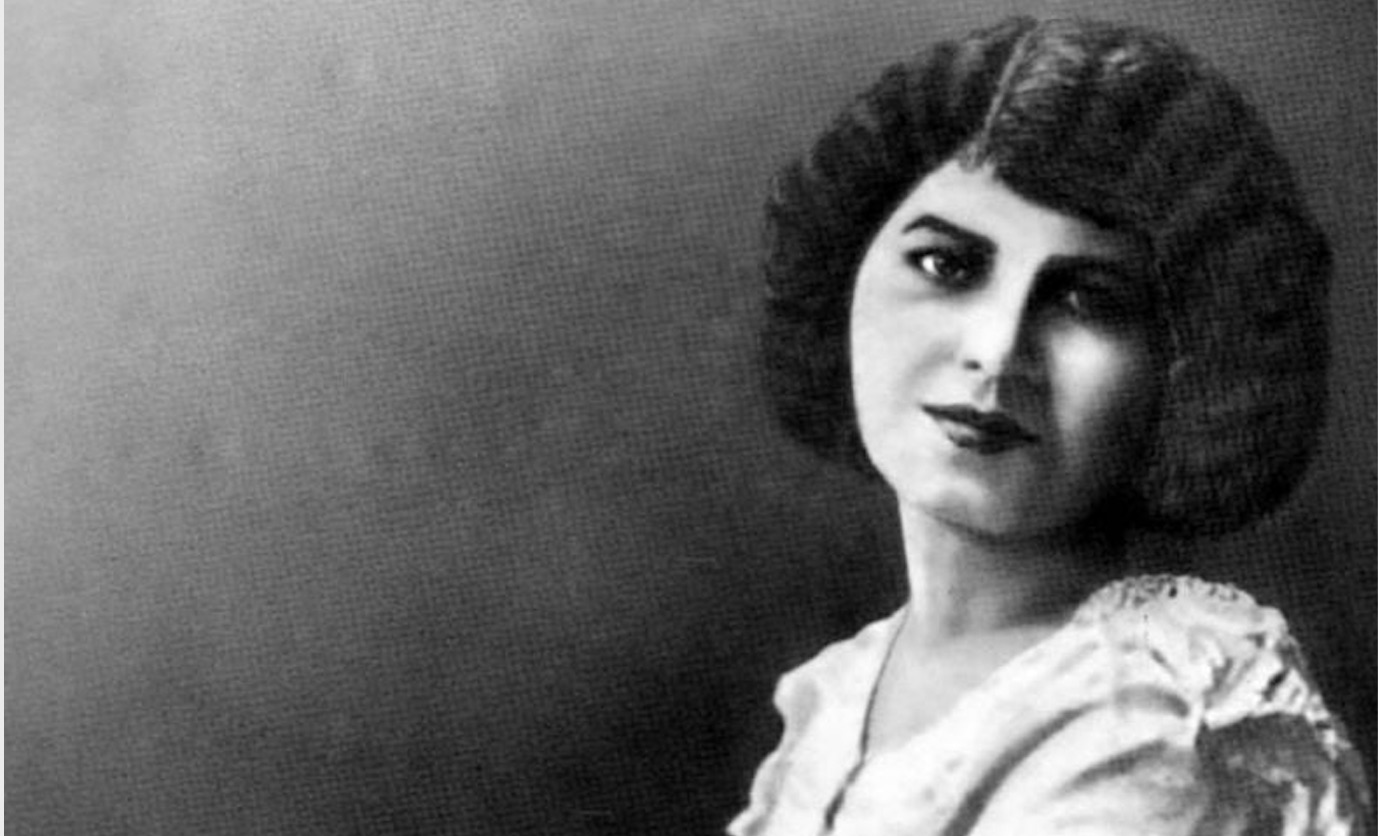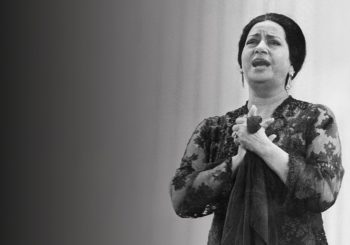May Ziadeh was a simple girl from Nazareth, Palestine—but she grew up to be the pioneer of Arab writing and feminism. A woman who has spent her life between pens, stationery, and books, Ziadeh influenced generations—and her genius rendered her immortal.
In her writing, the whole world belonged to Ziadeh.
Ziadeh was born in 1886 to a Lebanese father and a Palestinian mother. Although she was educated in Lebanon, she moved to Egypt with her family, where she studied Arabic literature, Islamic history, and philosophy.
In 1911, Ziadeh started writing for the newspaper al-Mahrousa. Her first published work was Fleurs de rêve (1911), which was a volume of poetry written in French under the name Isis Copia. By 1912, Ziadeh founded her literary salon ‘Tuesday Seminar’ which was one of the most important Arab literary salons in the 1910s and the 1920s, attended by famous literary figures such as Taha Hussein, Khalil Mutran, Yaqub Sarruf, Ahmad Shawqi, and many other writers.
It would not be long until Ziadeh was at the forefront of the feminist movement in Egypt. She was a strong advocate of the emancipation and liberation of women, and believed that women’s freedom centered around two main aspects: work and education.
During a conference titled Le But De la Vie (The Goal of Life, 1921), Ziadeh explained that the liberation of women lay in their hands, vouching for their freedom.
A life of profound influence
In the preface of her book Sawaneh Fatat (Platter of Crumbs, 1922) Ziadeh noted that “some thinkers, especially those who believed themselves to be thinkers, have exaggerated in separating women from mankind, which they almost made exclusive for man,” she wrote.
“They [women] are a part of the comprehensive humanity, and every deficiency in them is a part of the common human impotence, and every trace of their intelligence is one of the aspects of the general human thought.”
She was critical of the society that put women under a watchful eye, one that was reluctant to make room for women writers, thinkers, and innovators.
Her writings reflected the power that women hold, some of her famous books include Al Bahithat al-Badiyat (Beginning Female Researchers, 1920), Al-Sahaef (The Newspapers 1921), Ghayat Al-Hayat (The Purpose of Life, 1921), Kalimat wa Icharat (Words and Signs, 1922), Zolomat wa Ichaat (Injustices and Rumors, 1923), and Al-Musawah (Equality, 1923).
Over the years, she was not only limited to writing, but she was also a prolific orator, photographer and musician.
Ziadeh’s life was not without tragedy: having suffered the loss of her parents in 1929 and her partner, the famous writer Gibran Khalil Gibran three years later, she was overcome by grief. Ziadeh passed away in 1941, but she lived a life of incredible influence.
She wrote in her diary: “after my death, I hope that someone will do me justice and find the sincerity and honesty contained in my small writings.”
Ziadeh was brilliant, well-read, and captivating—earning the sobriquet al-nabiha May (genius May) and faridat al-‘asr (the matchless of her age).







Comment (1)
[…] window.speakol_pid = 29 (adsbygoogle = window.adsbygoogle || []).push({}); From Nazareth to the World: a Look Back at the Life of Arab Feminist Writer May Ziadeh […]